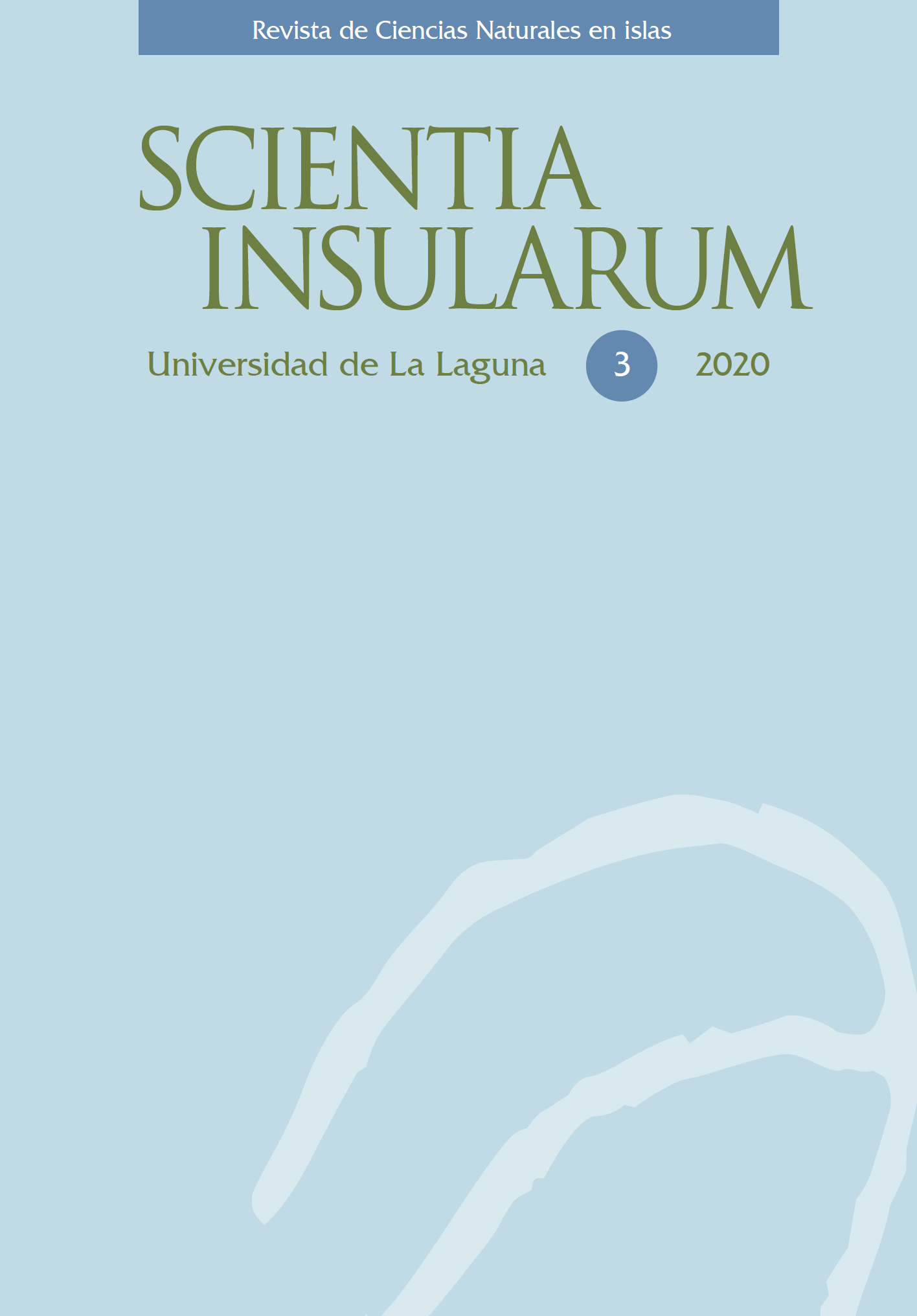Sir Joseph Hooker on Insular Floras: human impact and the natural laboratory paradigm
Resumen
En 1866 el botánico Joseph Dalton Hooker (1817-1911) impartió una conferencia a la Sociedad Británica para el Avance de la Ciencia en Nottingham, titulada «Floras insulares». Esta conferencia ha sido catalogada como «la primera declaración sistemática de la importancia de las islas para estudios evolutivos». Como tal, puede decirse que contribuyó al desarrollo del concepto de las islas como «paradigma de laboratorio natural», que contempla estas como modelos sistémicos para el estudio de ecología y evolución. La conferencia de Hooker también subrayó la existencia de otro elemento clave en la configuración del patrón de la biodiversidad insular, concretamente, el impacto humano. Cuándo y cómo puede el impacto humano comprometer su utilidad como «laboratorio natural». Hasta el momento se han postulado no menos de ocho carencias, o faltas de conocimiento, que impactan los estudios de biodiversidad. En este trabajo proponemos una nueva carencia, la hookeriana, para considerar la incertidumbre de que los patrones de biodiversidad observados respondan más procesos naturales que impactos antrópicos.
Derechos de autor 2020 Scientia Insularum - Islands Science

Esta obra está bajo licencia internacional Creative Commons Reconocimiento-NoComercial-SinObrasDerivadas 4.0.





